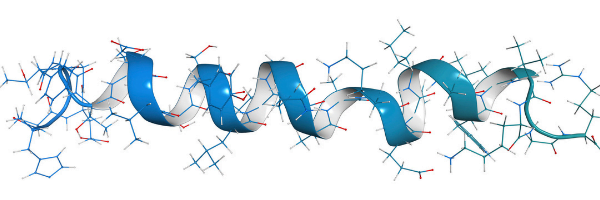Multidrug Resistance
Multidrug Resistance (MDR) refers to the ability of cancer cells to resist multiple chemotherapy drugs. This resistance is often caused by mutations or overexpression of genes such as ABCB1 (P-glycoprotein, also called MDR1), ABCC1 (MRP1), and ABCG2 (BCRP). These genes encode transporter proteins that pump chemotherapy drugs out of cancer cells, reducing their effectiveness.
Mutations in MDR-related genes can increase drug resistance by increasing the removal, or efllux, of drugs from within cancer cells. They can also work to our benefit by causing cancer cells to be more sensitive to treatment.
Natural Treatments for MDR Mutations in Cancer
Some natural compounds have the ability to inhibit MDR genes or enhance chemotherapy effectiveness. These natural treatments work by blocking drug efflux pumps, sensitizing cancer cells to treatment, and reducing resistance.
Natural MDR Inhibitors (Efflux Pump Blockers)
Several plant-based compounds have been found to suppress MDR transporters like P-glycoprotein (MDR1/ABCB1), MRP1, and BCRP:
- Curcumin (Turmeric)
- Inhibits P-glycoprotein and MRP1, making cancer cells more sensitive to chemotherapy.
- Quercetin (Found in Onions, Apples, Green Tea)
- Blocks MDR1 and BCRP transporters, improving drug retention in cancer cells.
- Resveratrol (Red Grapes, Blueberries, Peanuts)
- Inhibits MDR proteins and promotes cancer cell death (apoptosis).
- Epigallocatechin Gallate (EGCG – Green Tea)
- Blocks P-glycoprotein and enhances the effects of chemotherapy.
Natural Anticancer Agents That Overcome MDR
Certain compounds directly kill resistant cancer cells or enhance chemotherapy:
- Berberine (Goldenseal, Barberry)
- Inhibits MDR transporters and enhances chemotherapy response.
- Honokiol (Magnolia Bark)
- Blocks MDR genes and induces apoptosis in resistant cancer cells.
- Apigenin (Parsley, Celery, Chamomile Tea)
- Suppresses MDR1 and promotes drug retention in cancer cells.
Diet and Lifestyle Approaches
- Anti-Inflammatory Diet
- High in cruciferous vegetables (broccoli, cauliflower) and omega-3s (flaxseeds, walnuts, fish).
- High in flavonoids (berries, citrus, grapes, onions, kale, parsley)
- Reduces inflammation and enhances treatment response.
- Fasting and Caloric Restriction
- May sensitize cancer cells to chemotherapy and reduce resistance.
- Probiotics and Gut Health
- Healthy gut bacteria (Lactobacillus, Bifidobacterium) influence drug metabolism and can enhance chemotherapy absorption.
Traditional Herbal Medicine Approaches
- Traditional Chinese Medicine (TCM)
- Shikonin (from Lithospermum) – Suppresses MDR1 and promotes apoptosis.
- Artemisinin (from Wormwood) – Targets resistant cancer cells.
- Ayurvedic Medicine
- Withaferin A (Ashwagandha) – Inhibits MDR transporters and promotes cell death.
GST (Glutathione S-Transferase) Mutations
Glutathione S-Transferases (GSTs, including GSTM1, GSTT1, and GSTP1) are detoxification enzymes that help cancer cells neutralize chemotherapy drugs. GST mutations or overexpression can lead to chemotherapy resistance by detoxifying drugs before they take effect.
There is also increased oxidative stress if GST function is lost (as seen in GSTM1/GSTT1-null mutations) and a higher risk of cancer (e.g., GSTP1 mutations are linked to prostate and lung cancer).
Natural Treatments to Modulate GST Activity
GST Inhibitors (For Drug-Resistant Cancers)
If GST is overactive, these natural compounds inhibit GST and restore chemotherapy sensitivity:
- Curcumin (Turmeric) – Suppresses GSTP1 expression and enhances chemotherapy.
- Silibinin (Milk Thistle) – Blocks GST and reduces drug resistance.
- Epigallocatechin Gallate (EGCG – Green Tea) – Lowers GST activity and enhances chemotherapy effectiveness.
- Resveratrol (Red Grapes, Blueberries) – Inhibits GST and promotes apoptosis in resistant cancer cells.
GST Activators (For Detoxification & Antioxidant Support)
If GST function is reduced due to a GSTM1 or GSTT1-null mutation, these natural compounds boost detox pathways:
- Sulforaphane (Broccoli, Brussels Sprouts, Kale) – Activates NRF2, increasing GST function for detoxification – Helps prevent cancer and reduce chemotherapy side effects.
- N-Acetylcysteine (NAC – Found in Garlic, Onions – Supports glutathione production and enhances GST activity – Protects normal cells from chemotherapy toxicity.
- Alpha-Lipoic Acid (ALA – Found in Spinach, Beets) – Restores glutathione levels and GST function – Reduces oxidative stress in liver and brain cells.
- Quercetin (Onions, Apples, Green Tea) – Modulates GST enzyme function based on body needs – Balances detoxification and antioxidant defense.
Diet & Lifestyle Strategies for GST Regulation
- Cruciferous Vegetable-Rich Diet (Broccoli, Kale, Cabbage) – Naturally enhances GST activity and detoxification.
- Intermittent Fasting – Reduces oxidative stress and enhances natural detox pathways.
- Avoiding Excess Acetaminophen (Tylenol) & Alcohol – Protects glutathione levels for better GST function.
Glossary
Here’s what each abbreviation stands for:
- ABCB1:
- Full Name: ATP Binding Cassette Subfamily B Member 1
- Also Known As: P-glycoprotein or MDR1 (Multidrug Resistance Protein 1)
- ABCC1:
- Full Name: ATP Binding Cassette Subfamily C Member 1
- Also Known As: MRP1 (Multidrug Resistance-associated Protein 1)
- ABCG2:
- Full Name: ATP Binding Cassette Subfamily G Member 2
- Also Known As: BCRP (Breast Cancer Resistance Protein)
Additional Resources
Glutathione S-Transferases in Cancer


